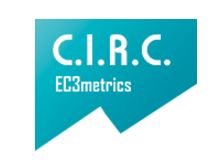Authors
Abstract
Abstract: Objective. To share theoretical, conceptual and methodological sociolinguistic signs that people build during therapeutic conversation. Methodology. The methodological approach articulates grounded theory guidelines and microanalysis of human communication, following step by step the guidelines that connect interactive languages between therapists and patients. On this basis, the article explains and contrasts three moments: the problem, the redefinition and the change containing different features both in the dialogic creation and in the narrative fragments. Results. This text articulates three sociolinguistic categories, namely: codes, procedural time and interactive contexts, which are not easily perceived in a therapeutic conversation and even less in the conversations of everyday life. The richness of these dialogic fields is the encounter between people’s diverse voices and the delicate work of the actions and relational creations that unites them: a problem or its transformation. The central idea is to answer the following question: what dialogic forms keep the troubled platform and which drive languages change? Conclusions. The text provides guidelines to observe and understand some features of the languages of the problem and the languages of change that will help therapists identify in which conversational transaction the patients’ relationships are as well as the relationship of the therapist with the patients.
References
Bertalanffy, L. (1976). Teoría general de los sistemas. Ciudad de México, México: Fondo de Cultura Económica.
Bertalanffy, L. (1992). Perspectivas en la teoría general de los sistemas. Madrid, España: Alianza Editorial.
Boczkowski, P. (1995). Articulaciones del construccionismo social en terapia familiar sistémica. Sistemas Familiares , 13 (3), 37-48.
Corona, P.E. (2005). Paul Ricoeur. Lenguaje, texto y realidad. Buenos Aires, Argentina: Editorial Biblos.
Fried Schnitman, D. (2010). Diálogos generativos e indagación apreciativa: perspectivas y herramientas para el diálogo en/entre organizaciones. Co-construyendo el espacio de la cooperación: evidencias de la evolución en el vínculo Academia-OSC. Bogotá, Colombia: Kellogg’s.
Fried Schnitman, D. y Fuks, S. (1993). Paradigma y crisis: entre el riesgo y la posibilidad. Sistemas Familiares,
9 (3), 33-44.
Gergen, K.J. (1996). Realidades y relaciones. Aproximaciones a la construcción social. Barcelona, España: Editorial Paidós.
Keeney, B. (1994). Estética del cambio. Buenos Aires, Argentina: Editorial Paidós.
Navarro, E.V. (2004). La sociología del tiempo de Norbert Elias. Razón, lenguaje e historia. Valencia, España: Universidad de Valencia.
Nardone, G. y Watzlawick, P. (2002). El arte del cambio. Manual de terapia estratégica e hipnoterapia sin trance. Barcelona, España: Herder.
Pakman, M. (1996). Introducción. Las semillas de la cibernética. Barcelona, España: Gedisa.
Ricoeur, P. (1986). Del texto a la acción. Ciudad de México, México: Fondo de Cultura Económica.
Ricoeur, P. (1995). Teoría de la interpretación. Madrid, España: Siglo XXI.
Ricoeur, P. (2001). Tiempo y narración III. El tiempo narrado. Madrid, España: Siglo XXI Editores.
Ricoeur, P. (2008). Hermenéutica y acción. Buenos Aires, Argentina: Prometeo.
Sánchez, M. Hilda. (2013). Conversaciones terapéuticas que acompañan las transformaciones sociolingüísticas en las relaciones sociofamiliares. Revista Latinoamericana de Estudios de Familia, 5, 160-185.
Sánchez, M.H. (2014). Códigos sociolingüísticos, familias y terapia sistémica: construcción del cambio sociofamiliar (tesis de postgrado). Universidad de Buenos Aires, Argentina.
Shotter, J. (2001). Realidades conversacionales. La construcción de la vida a través del lenguaje. Buenos Aires, Argentina: Amorrortu editores.
Sluzki, C.E. (1993). Prefacio a la segunda edición castellana. Teoría de la comunicación humana. Barcelona, España: Herder.
van Dijk, T.A. (1999). Ideología. Una aproximación multidisciplinaria. Barcelona, España: Gedisa.
Vásquez, J.G. (2013). Las reputaciones. Bogotá, Colombia: Alfaguara.
Vega, M. (2001). Tiempo y narración: en el marco del pensamiento postmetafísico. Revista de Estudios Literarios, 18. Recuperado de https://pendientedemigracion.ucm.es/info/especulo/numero18/ ricoeur.html.
Vial, S. (2000). Comentarios a Tiempo y narración de Paul Ricoeur. Recuperado de http://www. bicentenariochile.
Wittgenstein, L. (2006). Observaciones sobre la filosofía de la psicología. Ciudad de México, México: Filosofía Contemporánea.
Zbinden, K. (2006). El yo, el otro y el tercero. El legado de Bajtín en Todorov. Primavera. Acta Poética, 27 (1), 327-339.

 PDF (Español)
PDF (Español)
 FLIP
FLIP




















